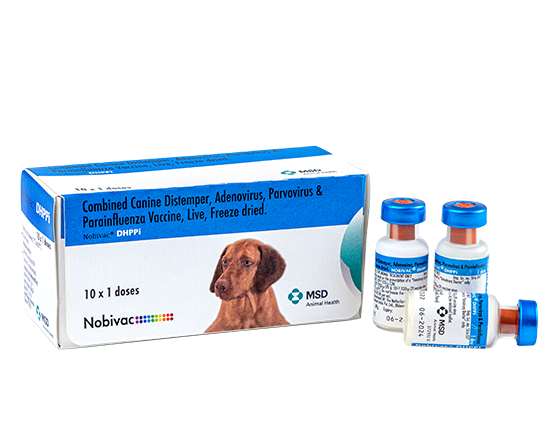
A Bernese Rottie, also known as a Bernweiler, is a hybrid of a Bernese Mountain Dog and a Rohttps://rottweilerscare.com/category/blog/ttweiler, characterized by its strength, energy, and love, requiring proper training, socialization, and regular exercise.
A Bernese Rottie or Bernweiler is another name for a puppy that is a hybrid of a Bernese Mountain Dog and a Rottweiler. With features from both of its parent breeds, this hybrid breed is big and strong. They might have a long, thick coat that is white, tawny, or black in color. They are energetic, devoted, and loving dogs that require the right training and socialization. Regular grooming and exercise are also necessary to maintain their health and happiness.
If you are interested in getting a Bernese Rottie puppy, you should be prepared for the following:
- They have a maximum height of 28 inches and a maximum weight of 130 pounds.
- Their normal lifespan is between six and ten years, but they could inherit certain health conditions from their parent.
- They prefer to have a sizable outside area to play in and explore, and they require at least 45 minutes of walking each day.
- They require five cups or more of wholesome food every day, spread out over smaller meals.
- At the very least, brush them once a week; during the shedding season, brush them more frequently. Additionally, they must bathe as needed or once a month.
- They can be independent and obstinate, but they are also intelligent and obedient. For them to avoid behavioral issues, early and regular training and socializing are necessary.
- They are loyal to and protective of their family, but with the right socialization, they may also be calm and amiable around outsiders and toward other animal.
For an ideal owner, a puppy Bernese Rottie may create a fantastic companion, but they aren’t for everyone. They can be difficult to manage and train, and they require a great deal of love, care, and attention. They work best with people who have expertise with large, powerful dogs and who can give them a home and way of life that suits them.
Some health issues that Bernese Mountain Rottweilers may inherit from their parent breeds are:
- Cancer: A serious illness that can kill a person, cancer can harm the body’s tissues and organs. Compared to other breeds, Bernese Rotties are more likely to acquire cancer, particularly bone cancer, lymphoma, and hemangiosarcoma.
- Hip and elbow dysplasia :Hereditary illnesses known as hip and elbow dysplasia result in improper development and degeneration of the hip and elbow joints, causing discomfort, stiffness, and arthritis. Because of their massive size and weight, Bernese Rotties are prone to elbow and hip dysplasia.
- Joint issues : In addition to hip and elbow dysplasia, osteochondritis dissecans, panosteitis, and collateral joint breakage are other joint issues that can affect Bernese Rotties. Inflammation, lameness, and decreased movement in the afflicted limbs are possible outcomes of these disorders.
These are a few of the more common health issues that Bernese Rotties may inherit, in addition to the only ones. It’s imperative that you take your dog to the vet on a regular basis and watch for any signs of illness or discomfort in their behavior and overall health. Accurate diagnosis and care can prolong your dog’s life and prevent further problems.
How can I prevent cancer in my Bernese Rottweilers ?

Cancer is a serious and complex disease that can affect any dog, but some breeds like Bernese Rotties are more prone to it. To reduce the risk and improve your dog’s health, consider the following tips:
1. Choose a responsible breeder who has examined their dogs for common cancers and other health issues. Request health certificates and pedigrees detailing the parents’ and litter’s medical history.
2. Spay or neuter your dog at the right time, considering their age, breed, and sex. Consult your veterinarian about the optimal timing.
3. Feed your dog a balanced and nutritious diet, avoiding overfeeding and opting for premium dog food. Supplement with fresh fruits and vegetables for phytochemicals and antioxidants.
4. Exercise regularly, ensuring your dog gets at least 45 minutes of moderate to intense exercise daily. Avoid environmental hazards like fertilizers, pesticides, herbicides, and sunlight.
5. Monitor your dog’s health and behavior regularly, as early detection is key to preventing cancer. Take your dog to the vet and schedule regular wellness examinations, shots, and screenings.
These are some of the things you can do to prevent cancer in your Bernese Rottie, but they are not foolproof. Cancer can still develop in dogs that are well-cared for and healthy. However, by following these tips, you can improve your dog’s quality of life and reduce the chances of them getting cancer. Remember that your dog is your best friend and deserves your love and attention.
Are there any vaccines for cancer prevention in Rottweilers Dogs?

There is no specific vaccine that directly prevents cancer in dogs, but certain preventive measures can indirectly reduce the risk of certain cancers. These include the Canine Parvovirus Vaccine and the Rabies Vaccine. Lifestyle and environmental factors, such as spaying and neutering, avoiding harmful chemicals, and frequent veterinarian checkups, can also help reduce the risk of cancer. Cancer-specific vaccines are being developed, but they are not yet widely accessible. Maintaining overall health, providing a balanced diet, and ensuring regular veterinary care are essential for your dog’s well-being and indirectly contribute to cancer prevention.
What are some common cancers in Rottweilers Dogs?

Maintaining a balanced diet and regular veterinary care are crucial for your dog’s well-being and cancer prevention. Common types of cancer in dogs include malignant lymphoma, osteosarcoma, hemangiosarcoma, mast cell tumors, melanoma, lymphomas, and mammary cancer. Malignant lymphoma affects the lymphatic system and can be genetically predisposed to certain breeds. Osteosarcoma is the most prevalent bone cancer in dogs, affecting the lungs, lymph nodes, and other bones. Hemangiosarcoma affects the liver, spleen, heart, or skin, and can be undetected until tumor growth or rupture occurs. Mast cell tumors require early detection and surgical removal. Melanoma is also a risk for dogs, and timely veterinary visits and awareness of signs of illness are vital for detecting and managing cancer in dogs.
What are some signs of cancer in Rottweilers Dogs?
Cancer in dogs can manifest in various ways, including weight loss, loss of appetite, difficulty swallowing, lameness, tumor growth, skin pigment changes, abnormal odor, and heavy breathing and coughing. Early detection is crucial for timely intervention. Veterinary care is necessary if lameness persists, as bone cancers can cause this. Other signs include unusual lumps, bumps, growths, changes in skin pigmentation, abnormal odor, and respiratory symptoms like heavy breathing and coughing.